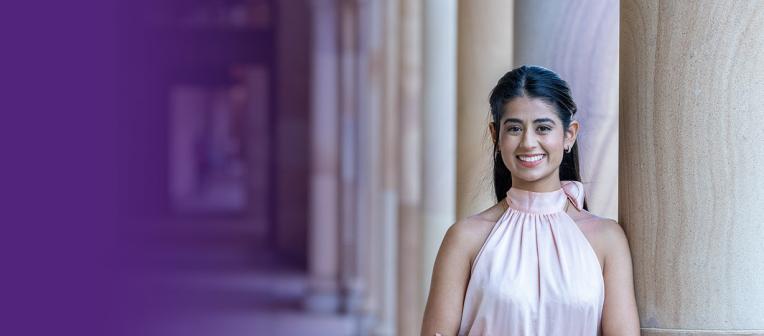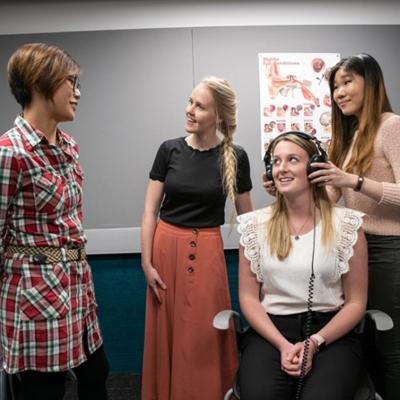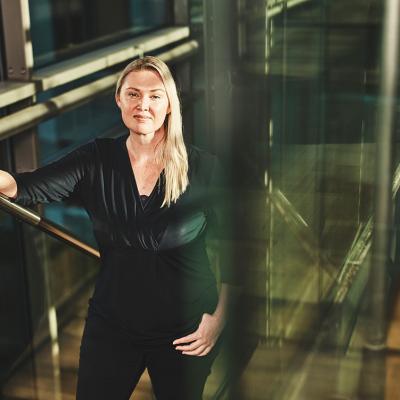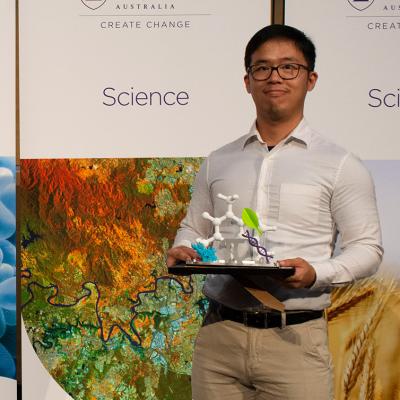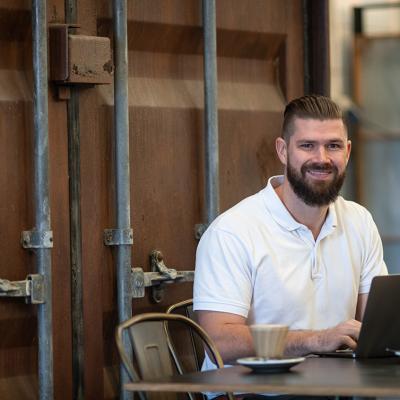Health technology and practice is an exciting postgraduate study area helping health professionals upskill and progress their careers in new directions.
Health technologies are constantly evolving, which impacts professionals working in all aspects of healthcare. It’s certainly an area where you need to continue your training to meet and exceed patient expectations.
We’ve talked to 2 graduates of UQ’s Master of Audiology Studies, along with a current Master of Nursing Studies (since renamed Master of Nursing (Graduate Entry)) student, to find out what it’s like to study in this fascinating and ever-changing field.
Anthea Bott works in research and management for a hearing aid manufacturer, Ramneet Ubbi is a paediatric speech pathologist looking to expand her skills as a clinician, and Avery Han is a trained medical interpreter pursuing her passion for nursing. They’re all keen to share their insights and advice to help you decide if undertaking postgraduate studies in health technology and practice sounds like the right path for you.
What inspired you to undertake postgraduate studies in health technology and practice?
Anthea: It was actually a former colleague who had been studying audiology while we worked together at Centrelink. I was looking to change careers and spoke with her about how she found her career change and what it was like working as an audiologist. She said how terrific it was, how varied her tasks were and, most importantly, how she was able to help people hear and communicate with their loved ones. To me, this sounded like the perfect fit for what I was looking for with my career change.
Avery: My passion for nursing grew out of my deep interest in health sciences, which began during my undergraduate studies in biology. That academic foundation gave me a strong understanding of the human body, and I realised I wanted to take that knowledge further by making a direct impact on people’s lives. Additionally, my previous work as a medical interpreter allowed me to see the vital role healthcare providers play in patient care. Being able to witness the compassion, expertise, and dedication of nurses sparked my desire to be a part of that world. Nursing also gives me the opportunity to bridge my understanding of different cultures, which is important to me as I want to support and connect with diverse patient populations.
Ramneet: Working as an early-career speech pathologist, I have recognised a huge need for combined speech pathology and audiology services. However, these specialised services are very limited. In the future, I endeavour to contribute to this population with specialised clinical intervention for individuals with hearing loss.
Looking for Commonwealth supported postgraduate nursing courses?
UQ is providing Commonwealth Supported Places (CSPs) to domestic students for its Master of Nursing (Graduate Entry), Master of Nurse Practitioner, and Master of Audiology Studies in 2026. This means that your tuition fees could be significantly reduced.
How have postgraduate studies in health technology and practice helped you to achieve your career goals?
Anthea: It has been the best decision I have made to study the Master of Audiology Studies program. It was the stepping stone to where I am today, but I made a lot of ‘outlier’ decisions.
When I started the program, I assumed I would be a clinical audiologist, that is, based at a hospital or at a hearing aid clinic. It was only toward the end of the program that I considered undertaking a PhD, which led me to Copenhagen, Denmark – where more opportunities presented themselves.
Now I manage a team of data scientists/machine learning engineers in an R&D department of a hearing aid manufacturer. It is quite remarkable to think how things have progressed over the past 9 years – I am excited to see what new challenges are around the corner.
“There is no way I could have predicted this would be my career path when I attended my first audiology lecture.”
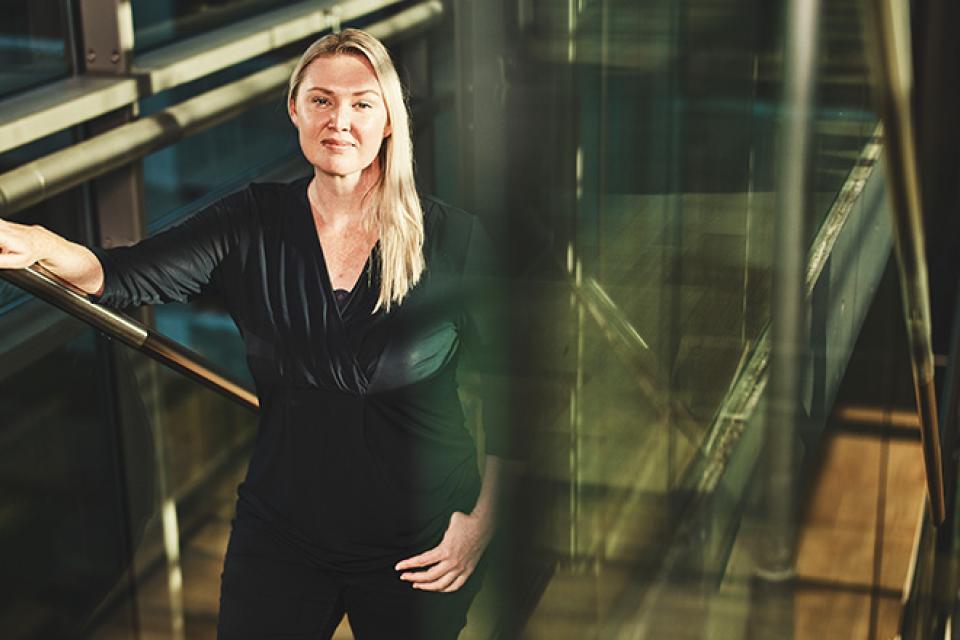
Part of Anthea's job involves travelling to different countries and presenting to external stakeholders on what her team is working on in the audiology research and development space.
Ramneet: Studying audiology prepared me for the workforce. With so many challenges and changes to the healthcare system, being a prepared clinician that is holistic in their service will assist the community. Audiology is preparing me to serve the hearing-impaired population alongside my career in providing speech pathology intervention.
I have been able to recognise no individual client is the same; they all come with different diagnoses, and it is up to us as clinicians to work with both the client’s strengths and limitations to help achieve goals. I am continuing to develop my professional connections so I can connect with the different avenues of specialisation available in audiology.
Avery: My postgraduate degree has been instrumental in helping me achieve my career goals by providing me with the advanced knowledge and practical skills necessary to excel in the nursing field. Through hands-on clinical experiences and exposure to evidence-based practices, I have developed a deeper understanding of patient care and healthcare systems. The degree has also opened doors to new professional opportunities, such as working in multidisciplinary teams and exploring specialised areas of nursing. Overall, it has equipped me with the confidence and expertise to pursue a meaningful and successful career in health care.
What has been your favourite course to study and why?
Avery: My favourite course was Acute Care Nursing (NURS7123) because it aligns with my passion for working in the acute care field. The course provided a deep dive into the fast-paced and critical aspects of nursing, where quick thinking and advanced skills are essential. I found it exciting to learn how to manage complex patient situations, and it gave me the confidence to pursue a career in this challenging and rewarding area of health care.
Ramneet: My favourite course was Clinical Practice in Audiology II (AUDL7806). This course allows you to apply all the technical content into a simulated appointment between you and a client. It puts you on the spot and helps you reflect on how you'd approach a case from the very beginning until the end.
Allied health technology and simulation
Interested in seeing how UQ helps health technology and practice students prepare for real patient situations? Take a tour of our simulation facilities.
Which specific courses and/or teachers do you think helped you the most?
Avery: The clinical placement course with weekly clinical labs has been the most impactful for me. It provided invaluable hands-on experience and allowed me to apply theoretical knowledge in real-world settings. The weekly labs were particularly helpful in developing my practical skills, boosting my confidence in patient care, and preparing me for the complexities of the healthcare environment. The guidance and feedback from experienced instructors during these labs also played a key role in shaping my abilities and understanding of nursing practice.
Anthea: The research project that I undertook in the second year of the program and the statistics courses.
Ramneet: I highly enjoyed the Audiological Assessment and Clinical Practice (AUDL7821) and Advanced Audiological Assessment (AUDL7803) practicals by Associate Professor Joseph Kei as they helped me understand how I need to perform an audiology assessment as a clinician and what it feels like to be the client. It taught me what I can do next time to make the client most comfortable.
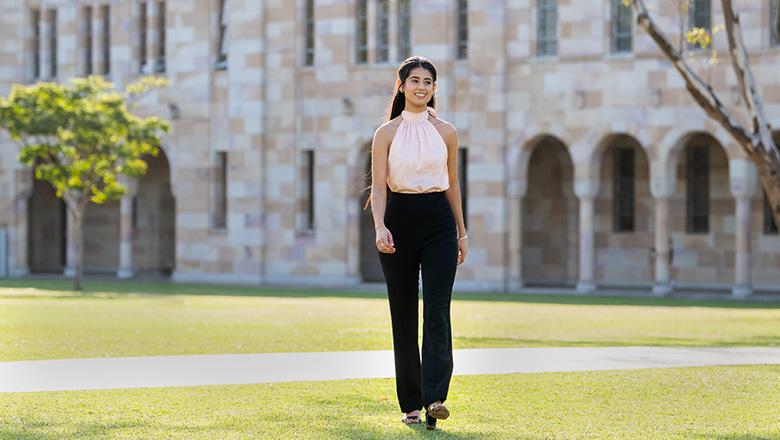
Ramneet is passionate about combining her skills in speech pathology and audiology to provide a unique service to her clients.
How have your placements and extracurricular opportunities shaped your study experience?
Ramneet: In my postgrad studies, I was treated as an audiology health professional in training and not as a student – this means we are all encouraged to become more independent in clinical practice, but still have the support of academic staff. I could reflect on developing my personal skills after each placement in order to meet the professional competencies.
“I had several placements, and they were a super useful tool to become confident in being able to approach real people and real cases.”
I also went to the Audiology Australia conference. It was absolutely amazing to see how far a career in audiology can go, what we still need to achieve, and how innovative the next generation of audiologists could be. I was able to connect with other audiology students from universities around Australia.
What does an average day look like for a postgrad student in health technology and practice?
Avery: My average day typically involved attending classes 3 days a week, which is fewer than in some other programs. On class days, I spent time in lectures, labs, or tutorials, followed by independent study or group work. I had more flexibility on the other days, which allowed me to focus on assignments, study, and prepare for exams. Since I will complete my placements out of semester, my routine stayed fairly consistent across both years. The out-of-semester placements gave me the chance to fully immerse myself in clinical practice without the added pressure of coursework, which was a nice balance.

Why did you choose UQ for your postgraduate degree?
Ramneet: I chose UQ due to its prestigious reputation, the commitment to its teaching staff and the quality of clinical practice training provided to students. Because of this, I am more prepared and confident in providing treatment for complex patient cases.
Avery: I chose UQ for my postgraduate nursing degree because of its strong reputation for academic excellence and its focus on cutting-edge research in health sciences. UQ’s nursing program stood out to me due to its comprehensive training and emphasis on evidence-based practice, which aligns perfectly with my career aspirations. As an international student, I was also attracted to the supportive environment UQ offers, along with its diverse and vibrant community. Additionally, UQ’s close connections with major healthcare institutions provide valuable opportunities for hands-on experience and professional development, which are crucial for my growth in the nursing field.
Did you know?
- UQ is #4 in Australia and #37 in the world for life sciences and medicine, according to QS World University Rankings by Subject 2025.
- UQ is #4 in Australia and #62 in the world for medical and health, according to Times Higher Education World University Rankings 2025.
What types of postgraduate degrees can you study in health technology and practice at UQ?
Digital technology in health is constantly progressing. Stay ahead of the curve so you can improve patient’s lives with one of UQ’s postgraduate degrees in health technology and practice:
- Master of Audiology Studies
- Master of Nursing (Graduate Entry)
- Master of Magnetic Resonance Technology*
- Master of Biotechnology*
- Master of Biotechnology Research Extensive
- Master of Medicine**
- Graduate Certificate in Clinical Informatics and Digital Health
*Also available to study as a graduate certificate or graduate diploma.
**Also available to study as a graduate certificate.
Find out how to get postgrad ready in 12 months or discover what it’s like to study postgraduate programs in other fields of interest.

